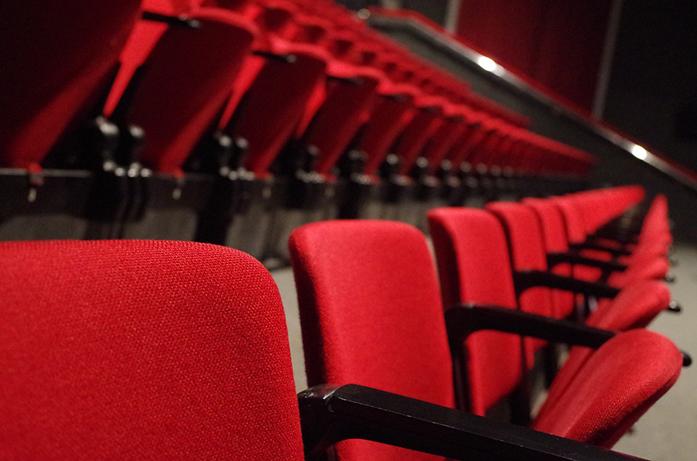By Laura Townsend
I spent Sunday afternoon on the edge of my seat in Mabie Theater, watching with intrigue and astonishment as the Simpsons family took a new form on stage in the currently running University of Iowa production Mr. Burns, a post electric play. The show was like nothing I have ever seen before. It broke every rule and pushed every button fiercely and unapologetically. The play uses the lens of one “Simpsons” episode to take the audience through a postapocalyptic, dystopian, and apparently near future in which the human race is left with virtually nothing.
The play shatters every expectation. It is nothing like conventional theater, with no plot or regular cast of characters. The play gets more distant from conventions as it goes along, until the final act breaks off completely into musical theater. Mr. Burns is as crazy, strange, and nonsensical as an apocalypse itself might be, forcing the audience to think about what could happen if the human race found itself in a position in which all we once had was taken away.
As the play went on, I looked around at the audience members surrounding me. There was no defining characteristic. The theater contained a wide range of ethnicities, ages, and genders. Yet, here we all were, sitting together in an intimate setting, watching a performance about the end of the world and sharing in our laughter, our tears, and our bewilderment.
Theater brings people together in a way that little else does. There is an intimacy and an understanding among audience members and the performers, who are pouring their hearts out only a few feet in front of us, while we stare at them and react to them. Theater offers the unique opportunity to provoke a discussion about real-world issues through the lens of storytelling, regardless of how conventionally (or unconventionally) a story is told. Because of theater’s position as a medium that attracts people from all walks of life, it has an opportunity to grip a wide range of people and leave them inspired, thoughtful, and full of new knowledge.
In the current state of our country, in which our citizens often feel dangerously divided, theater is a vitally important outlet to spark healthy conversation and spread knowledge in a safe atmosphere.
After Mr. Burns ended, there was much talk in the lobby about how the apocalypse as represented in this play did not feel so far off from the world we are living in now. The near future, as the play refers to its first act, felt very, very near. My friend and I wondered how we could prevent such a future. We heard conversations all around us expressing the same concerns and desires to act before it’s too late.
The unconventionality of Mr. Burns demanded that the audience members step out of their comfort zones and see the world differently. The end of the play had a deep impact. The audience sat quietly for a long moment, absorbing the performance with a sense of uneasiness and amazement. Theater has the power to poke until strong emotions are inevitable, until it takes effort to calm racing thoughts. Theater has the power to make people listen. That alone is an astronomical accomplishment in a society in which it is so easy to shut ears to the voices of others.
If you possibly can, see Mr. Burns before the end of its run and be part of this vital conversation.



